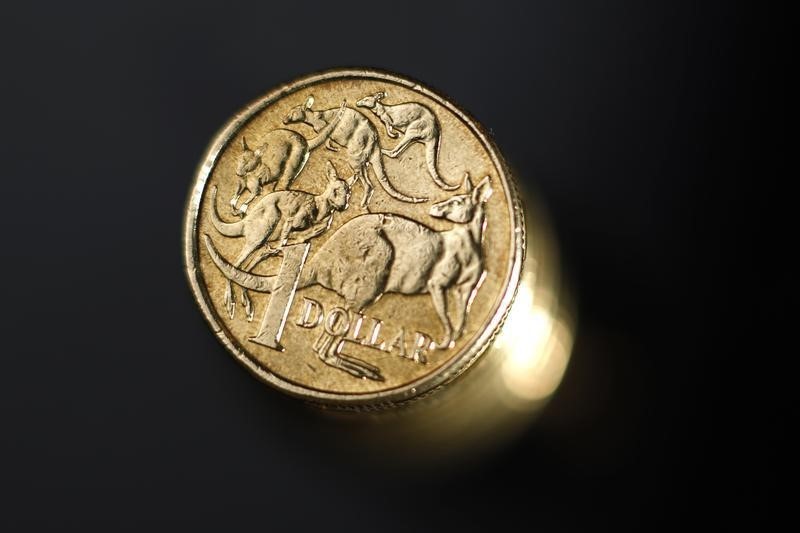* Yuan weakens for 3rd day, but holds above 4-year low
* Aussie holds firm, edges away from 6-year low
* Dollar index stabilises after previous day's fall (Updates prices, adds comments)
By Masayuki Kitano and Shinichi Saoshiro
SINGAPORE/TOKYO, Aug 13 (Reuters) - The Australian dollar inched higher on Thursday as the yuan's depreciation showed signs of slowing.
China's yuan fell for a third day and eased about 0.3 percent to 6.4090 versus the dollar, but held above a four-year low of 6.4510 set on Wednesday, as the central bank said there was no basis for further depreciation given strong economic fundamentals.
Banking sources said the People's Bank of China had stepped up its intervention in yuan trading in a bid to stabilise prices.
"There is a degree of calm returning to the market," said Mitul Kotecha, head of Asia-Pacific FX strategy for Barclays (LONDON:BARC) in Singapore. "The market certainly perceives that the Chinese authorities don't want the CNY to weaken too dramatically."
The Australian dollar, which is often used as liquid proxy for China plays, edged up 0.2 percent to $0.7391, moving away from a six-year low of $0.7217 set on Wednesday.
China's surprise yuan devaluation on Tuesday had stirred worries about the health of the Chinese economy and fanned fears of currency wars.
The U.S. dollar gained some respite and edged up about 0.2 percent against a basket of six major currencies to 96.420 .DXY , away from a one-month low of 95.926 set on Wednesday.
Against the safe-haven yen, the dollar rose 0.1 percent to 124.38 yen JPY= , although it still remained below a two-month high of 125.28 yen set on Wednesday.
"If risk-off type of trading recedes that should help support the dollar against the yen," said Masashi Murata, currency strategist for Brown Brothers Harriman in Tokyo.
The euro slipped 0.1 percent to $1.1143 EUR= , having backed off from a one-month high of $1.1215 set on Wednesday.
Growing doubts that the Federal Reserve will hike interest rates in September had knocked the greenback lower on Wednesday.
Such uncertainty has increased after China's surprise devaluation was seen as further clouding the outlook for the global economy. (Editing by Kim Coghill and Miral Fahmy)
